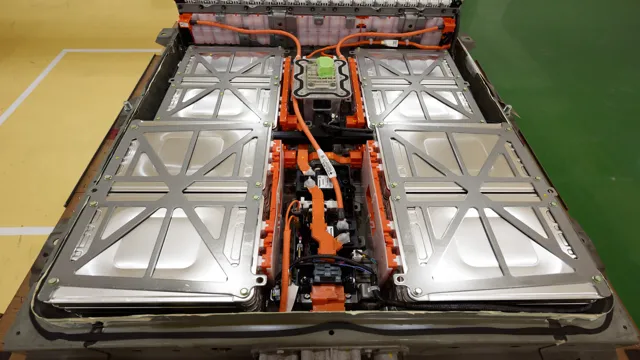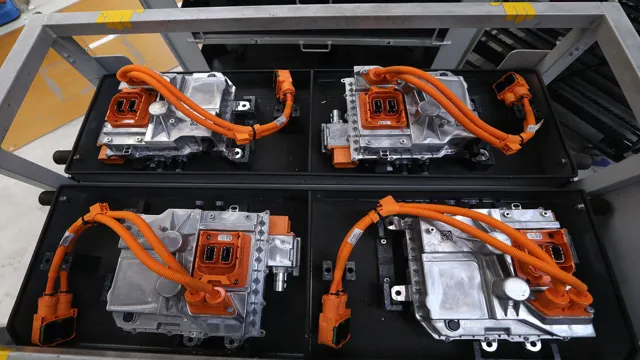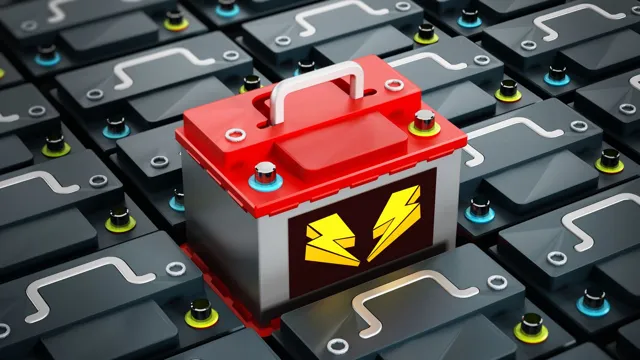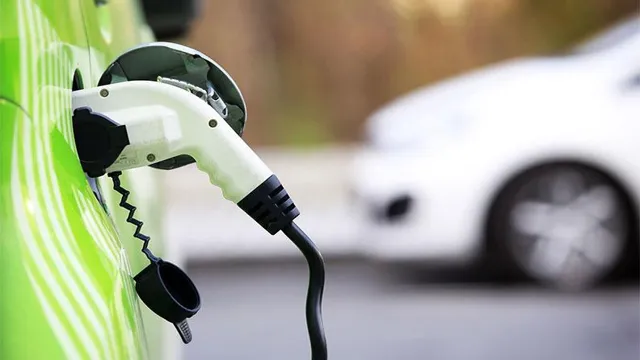Powering the Future: The Electric Car Battery Revolution is Here!
Is the future of driving electric? With the electric car battery revolution well underway, it seems inevitable that more and more people will switch to eco-friendly electric vehicles to get around. But what exactly is fueling this shift towards electric cars? The answer lies in the advancements in battery technology that are driving down the costs and improving the performance of these vehicles. Today’s batteries are lighter, more efficient, and longer-lasting than ever before, making it easier for drivers to make the switch.
Join us as we delve into the exciting world of electric cars and explore how the latest battery innovations are revolutionizing the way we drive.
Current State Of EV Batteries
The electric car battery revolution is rapidly progressing, with significant advancements being made in the current state of EV batteries. Electric cars are becoming a popular choice due to their environmental friendliness and low operating costs. Gone are the days of short battery life, with newer models being able to travel more than 300 miles on a single charge.
Some manufacturers are even claiming that their electric cars can travel up to 500 miles per charge. In addition to range improvements, batteries are becoming smaller and lighter, leading to better performance and a more enjoyable driving experience. The decline in battery prices is a significant aspect of the EV revolution.
As the demand for electric cars increases, it’s predicted that battery prices will continue to drop, making electric cars more affordable and accessible. Technological advancements are also being made to improve charging times and infrastructure, making electric cars more practical for everyday use. Overall, the current state of EV batteries shows great potential for the future and we can expect even more significant breakthroughs in the years to come.
Common Challenges
The current state of EV batteries presents several challenges that engineers and manufacturers need to address. First and foremost, increasing the range of electric vehicles is still a primary concern. While many EVs on the market can go up to 300 miles on a single charge, longer trips remain a challenge, and the lack of a widespread charging infrastructure exacerbates the issue.
Additionally, EV batteries’ service life is still inferior to traditional vehicle batteries, and warranties don’t typically cover degradation. Finally, there are issues regarding the ethical sourcing and end-of-life management of EV batteries, prompting governments and manufacturers to prioritize sustainable practices. Despite these issues, advancements in battery technology, such as solid-state batteries, are in development and have the potential to revolutionize the industry.
Overall, there is still much work to be done to optimize EV batteries, but it’s an exciting time for innovation and progress in sustainable transportation.
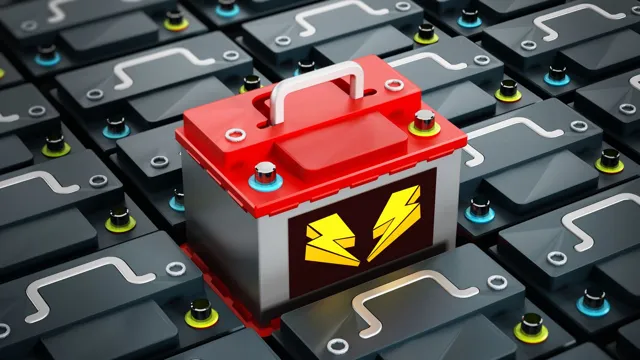
Costs Of EV Batteries
The cost of EV batteries is an important factor for consumers considering electric vehicles. Currently, the state of EV batteries is in a transitional phase. Prices are gradually decreasing as technology advances, but the upfront cost may still be higher than traditional vehicles.
This is due to the complexity and high production costs of the batteries. However, the long-term benefits of owning an EV, including lower fuel and maintenance costs, can outweigh the upfront investment. As the market for EVs grows, it is expected that the cost of batteries will continue to decrease, making them more accessible and affordable for consumers.
In the meantime, it’s important to consider the overall value and sustainability of EVs when making your vehicle purchase decision.
Advancements In Battery Technology
In recent years, the electric car battery revolution has taken the automotive industry by storm, and advancements in battery technology are playing a significant role in it. There have been massive improvements in the range, charging time, and durability of electric car batteries, making them more viable for everyday use. One of the significant advancements is the development of lithium-ion batteries, which have a higher energy density than traditional lead-acid batteries.
With these batteries, electric cars can travel longer distances on a single charge, making them a practical option for long-distance driving. Additionally, new battery chemistries are being developed, such as solid-state batteries, which promise to provide even greater energy density, faster charging times, and longer lifespan. As battery technology continues to advance, electric cars will become more popular, reducing our reliance on fossil fuels and decreasing carbon emissions.
While still in the early stages, the progress so far is promising, and the future of electric car batteries looks bright.
Solid-State Batteries
Solid-state batteries are a type of battery that is gaining popularity in the industry due to their numerous advantages over traditional lithium-ion batteries. These batteries have higher energy density, meaning they can store more energy in a smaller and lighter battery. They also have a longer lifespan and are safer, as they do not contain flammable liquids like their counterparts.
Additionally, they can operate in extreme temperatures and charge faster, making them ideal for electric vehicles and other high-performance applications. The main keyword in this context is “solid-state batteries,” which refers to the technology used to create these new and improved batteries. With the continued advancements in battery technology, these solid-state batteries are poised to revolutionize the energy storage industry and usher in a new era of faster, safer, and more efficient power solutions.
Lithium-Sulfur Batteries
Lithium-sulfur batteries are a promising advancement in battery technology due to their high energy density, affordability, and environmentally friendly components. Unlike traditional lithium-ion batteries, lithium-sulfur batteries use sulfur as a cathode material, which is abundant and cheap. This results in a lower cost to produce these batteries, making them an attractive option for various industries, including transportation and renewable energy.
Moreover, these batteries have a higher energy density, which means they can store more energy in a smaller size and weight. This makes them ideal for electric vehicles and portable devices that require longer battery life. Despite their benefits, lithium-sulfur batteries have some issues, such as low cycle life and low stability, which researchers are actively working to overcome.
Overall, lithium-sulfur batteries have the potential to revolutionize the battery industry and contribute to a greener and sustainable future.
Graphene-Based Batteries
As technology continues to progress, batteries are no exception to the innovative advancements that are continuously being introduced and made available to consumers. One type of battery that has shown significant promise and potential in recent years is the graphene-based battery. Graphene, a type of carbon material, is incredibly strong yet lightweight and conductive.
It is an excellent candidate for battery technology due to its ability to store large amounts of energy with a high charge transfer rate. Graphene-based batteries also have a longer lifespan than traditional batteries, making them more cost-effective in the long run. As more research and development are made in this area, graphene-based batteries can potentially revolutionize the technology industry by providing a more efficient and sustainable source of energy.
The Future Of EV Batteries
The electric car battery revolution has arrived, and it’s changing the way we think about cars and transportation. With advancements in technology, we’re seeing a steady increase in the range and performance of electric vehicle (EV) batteries. Whether it’s through solid-state batteries or new charging methods, the future of EV batteries is looking brighter than ever.
Solid-state batteries provide higher energy and power density while being safer and more reliable than traditional lithium-ion batteries. Additionally, wireless charging is becoming an increasingly popular option, allowing drivers to charge their EVs without ever having to plug anything in. As electric cars become more widespread, we can expect even more innovative solutions for EV batteries in the future.
The electric car battery revolution is undoubtedly here, and it’s exciting to see what the future holds for this technology.
Increased Range And Efficiency
Electric vehicles (EVs) have been around for some time now, and one area that continues to see improvement is the range and efficiency of EV batteries. With increasing demand for more environmentally-friendly modes of transportation, researchers and automakers are investing heavily in developing better battery technology. The latest advancements in battery chemistry, electrode materials, and manufacturing processes all contribute to higher energy densities and longer ranges.
The future of EV batteries looks promising with the development of solid-state batteries, which could offer improved safety, faster charging times, and even higher energy densities. As battery technology continues to evolve, it is becoming increasingly feasible for electric vehicles to replace their gasoline-powered counterparts altogether. This presents an exciting opportunity for a more sustainable and cleaner future, where we can all enjoy the benefits of cleaner air and lower greenhouse gas emissions.
Reduced Charging Times
As Electric Vehicles (EVs) gain popularity, the demand for better battery technology increases. One promising development is reduced charging times. Currently, fast charging an EV can take around 30 minutes to an hour, depending on the battery’s size and type.
However, research is ongoing to find ways to reduce charging times to just a few minutes. One approach is to use solid-state batteries that use a solid electrolyte instead of a liquid one. These batteries can charge faster and hold more energy than conventional lithium-ion batteries.
Another solution under investigation is wireless charging technology that enables EVs to charge while driving. Imagine driving on an electric highway, where your car charges as it moves, eliminating the need to stop and plug-in altogether. While this technology is still in its early stages, it’s slowly making progress towards becoming a reality.
As we look to the future, reduced charging times will play a critical role in making EVs more efficient, convenient, and accessible to a significant number of people.
Conclusion
The electric car battery revolution is not just a technological advancement, it’s a spark in the movement towards sustainable living. It’s not just about horsepower, it’s about the power to change the world. With every mile we drive, we are also driving towards a future of cleaner air, quieter streets, and a brighter tomorrow.
So let’s buckle up and join the ride towards a sustainable future, because the battery revolution is just getting started.”
FAQs
What is the electric car battery revolution?
The electric car battery revolution refers to the innovations and advancements happening in the electric vehicle sector, primarily in the development of batteries that are more efficient, cost-effective, and have longer ranges.
How are electric car batteries different from traditional car batteries?
Electric car batteries are different from traditional car batteries as they are designed to store and discharge more energy in a shorter period. They are also rechargeable and have a longer lifespan.
What are some of the challenges in the electric car battery revolution?
Some of the challenges in the electric car battery revolution include the high cost of production, limited availability of raw materials, and concerns surrounding the environmental impact of battery production and disposal.
How can the electric car battery revolution benefit the environment?
The electric car battery revolution can benefit the environment by reducing carbon emissions and air pollution caused by traditional combustion engine vehicles. Additionally, advanced battery technologies can store energy from renewable sources such as solar and wind power, reducing reliance on fossil fuels.
